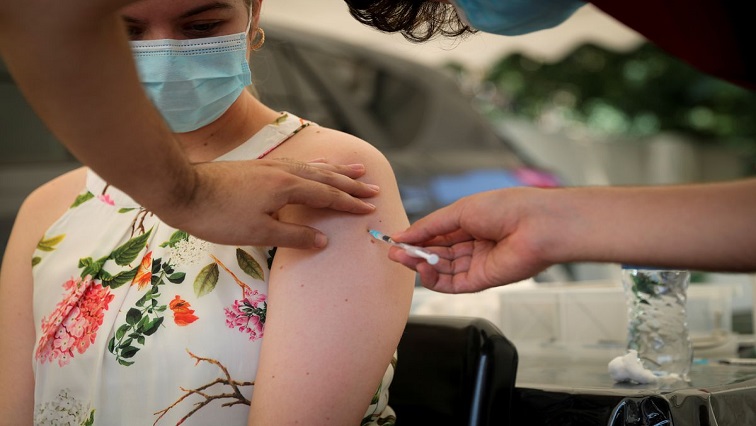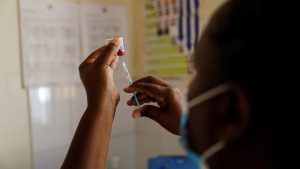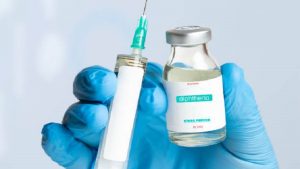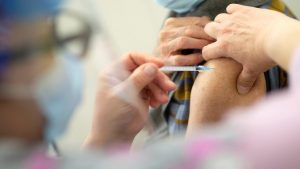South Africa has not reached its ambitious coronavirus vaccination target for the year. When the vaccine was rolled out to frontline healthcare workers in March – government intended to vaccinate almost 70% of the adult population by the end of 2021. However, a number of challenges has left the country’s vaccination figures low.
The AstraZeneca controversy, the July unrest and vaccine hesitancy served as major stumbling blocks. Currently, almost 28-million doses have been administered in the country. Around 15.7 million people are fully vaccinated.
South Africa’s vaccination programme had a faltering start. It was criticised for being slow to secure procurement. This came amid wealthier countries being accused of hoarding vaccine doses.
The roll-out was also slower than anticipated. Many challenges derailed the programme. It was dealt a blow even before being rolled out to healthcare workers.
A Wits and Oxford University study found that the AstraZeneca vaccine did not provide significant protection against mild to moderate Covid-19 that was caused by the B.1.351 variant. This was discovered after 1.5-million doses of the vaccine arrived from the Serum Institute of India.
The halting of the vaccine roll-out was met with criticism from both healthcare workers and unions. Spokesperson for the Democratic Nursing Organisation of South Africa (DENOSA) Bongani Mazibuko, expressed his disappointment.
“We would have expected that the Minister and his team would have gone through these research processes before the vaccines were acquired from India. It also makes it a bit difficult for all those that were looking to get vaccinated. With all this fake news circulating – it almost gives credence to it to say that the minister and team are confused and don’t know what they are doing. Everybody is now worried about these developments, they want to know now – how do they trust the other vaccines that will be coming through,” says Mazibuko.
COVID-19 Pandemic | Mitigating vaccine hesitancy in South Africa – webinar
Two months later, the Johnson and Johnson vaccine was temporarily suspended after the Food and Drug Administration in the US called for an immediate pause in use of the vaccine. Six women who received it developed a rare and severe form of blood clotting.
It was also discovered that private healthcare workers manipulated the Electronic Vaccination Data System (EVD) to get their wives and employees, who were not frontline healthcare workers, vaccinated. Officials from the Department of Health rectified loopholes in the system.
The programme was further disrupted by two weeks of civil unrest in KwaZulu-Natal and Gauteng in July that saw vaccines being stolen.
Vaccine hesitancy fuelled by fake news has been identified as the main obstacle. A survey conducted by the University of Johannesburg and Human Sciences Research Council early in 2021, revealed that one third of the population said they would most likely not take the COVID-19 vaccine.
One of the survey researchers, Professor Carin Runciman, says the main reason for vaccine hesitancy centres around the lack of information about side effects and safety.
“The most common concern was about side effects as a reason they did not want to take the vaccine. For those that said they were unsure, there was a big demand for information. Also, more information about how do we know that a vaccine is safe. There is a greater need for public information,” says Runciman.
The December 2021 vaccination target has been missed by a long shot. Despite numerous initiatives to encourage vaccination by making the jab free, increasing the number of sites, the Vooma drive and even grocery vouchers – many remain reluctant.
“I will not be taking the vaccine, I don’t believe there is sufficient information regarding the quality of the vaccine. Being young, I believe I will fight off the virus if infected,” says a resident.
“I feel like I am not educated enough. In saying that, I don’t feel we have had enough transparent education about this vaccine. What are the side effects? How many doses would you need? At this moment, I am inclined not to take the vaccine,” says another resident.
COVID-19 UPDATE: South Africa’s government coronavirus response and vaccination progress: Phaahla
Chairperson of the National Immunisation Safety Expert Committee, Professor Hannelie Meyer, says while South Africa has not reached its vaccination target – a larger portion of the population has developed immunity.
“We haven’t reached the target, we not even close to the target. We have vaccinated somewhere in the 40% of the adult population at least with one vaccine. According to studies, they say between 60 to 80% of the adult population have been exposed to the virus and have a level of immunity,” says Meyer.
Meyer says many lessons can be learnt from the vaccination challenges of 2021. She says more outlying communities need to be reached and more attention needs to be paid to dispelling fake news about the vaccine.
“The challenges that we have faced in 2021 has to do with vaccine hesitancy. What’s important is for people to trust the system and to increase confidence in vaccines themselves. There are still people that have not been reached. There is still misinformation and disinformation that’s being spread if you look at why people don’t want to get vaccinated. Hopefully, if we can get those very high groups vaccinated, we should be able to get hold of this pandemic in 2022,” says Meyer.
The low vaccination rate seems to have paved the way for vaccine mandates in the country. President Cyril Ramaphosa announced that government was discussing the issue.
The National Economic Development and Labour Council (NEDLAC), recommended that mandatory vaccinations should be implemented in workplaces, while certain venues should only be accessible to those who are vaccinated. Nedlac is expected to approach the Constitutional Court in 2022, for a declaratory order on vaccine mandates. Event organisers and the hospitality sector are also expected to introduce mandates.
2021 also saw reports of deaths of people after being vaccinated. However, after an investigation, the South African Health Products Regulatory Authority or SAHPRA indicated none have been found to be related to COVID-19 vaccinations.
Government has been encouraging citizens to report adverse reactions on the WHO Med Safety App.
Experts say South Africa’s fourth wave of COVID-19 infections has been an epidemic of the unvaccinated as the positivity rate remains high among those who have opted to not take the vaccine. Currently, vaccines are being rolled out to all age groups except children under the age of 12.
Mandatory Vaccination | Prof. Sylvester C. Chima on mandatory COVID-19 vaccination policy






